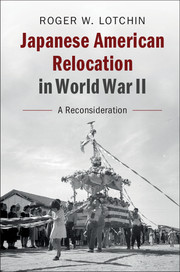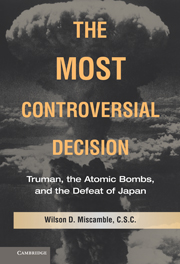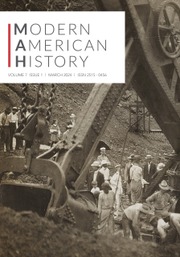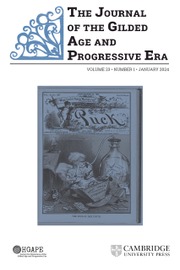Japanese American Relocation in World War II
A Reconsideration
£30.99
- Author: Roger W. Lotchin, University of North Carolina, Chapel Hill
- Date Published: June 2018
- availability: In stock
- format: Paperback
- isbn: 9781108410397
£
30.99
Paperback
Other available formats:
Hardback, eBook
Looking for an inspection copy?
This title is not currently available on inspection
-
In this revisionist history of the United States government relocation of Japanese-American citizens during World War II, Roger W. Lotchin challenges the prevailing notion that racism was the cause of the creation of these centers. After unpacking the origins and meanings of American attitudes toward the Japanese-Americans, Lotchin then shows that Japanese relocation was a consequence of nationalism rather than racism. Lotchin also explores the conditions in the relocation centers and the experiences of those who lived there, with discussions on health, religion, recreation, economics, consumerism, and theater. He honors those affected by uncovering the complexity of how and why their relocation happened, and makes it clear that most Japanese-Americans never went to a relocation center. Written by a specialist in US home front studies, this book will be required reading for scholars and students of the American home front during World War II, Japanese relocation, and the history of Japanese immigrants in America.
Read more- Emphasizes the importance of war on Western society and explains the relationship between war and race
- Explores a clearer definition of the concept of racism and restores the idea of complexity of motivation to the relocation narrative
- Encourages a more realistic understanding of historical narratives, minimizing the concept of racism
Reviews & endorsements
'Deeply engaging, original throughout, based on prodigious research in archival records and existing scholarship, Roger W. Lotchin's book is a path-breaking reexamination of the complex multiple causes and the actual human consequences of President Franklin D. Roosevelt's Executive Order 9066. His reconsideration of the role of racism in the World War II era is especially impressive, insightful, and timely.' William Issel, San Francisco State University
See more reviews'A bold, nuanced, and engaging study of Japanese-American relocation and WWII. This well-researched and passionately argued book deserves to be read by every scholar studying the war and home front. A reconsideration will be debated for decades.' Gary R. Mormino, University of South Florida, St Petersburg
'Lotchin uses patience, solid evidence, and an open mind to challenge our racist interpretation of Japanese American 'internment' centers during WWII. His fine book won't end the debate but should force us to confront our well-practiced and comfortable answers to who these people were and how many Americans really viewed them. The greatest testimony to the American identity of the men, women, and children who lived in these centers were the reproduction of the very communities from which they'd been taken and the unremarkable acceptance of these efforts by their captors. The lessons for us today couldn't be clearer or more poignant.' Daniel J. Monti, Saint Louis University, Missouri
'This study examines the Japanese American internment experience during WWII from a tenuous historical position: that it was done because of war and nationalism, not racism. Lotchin defines the different groups in this interned community: Issei, who immigrated at the turn of the 20th century, were denied citizenship by law, and often favored Japanese culture; Nisei, the sons and daughters of the Issei, who were American citizens by birth; and Kibei, Nisei who spent time in Japan, learned proper Japanese, and often favored the Japanese cause. In 1942, fearing a fifth column that would welcome Japanese invaders, the army and California believed that removal was the only answer. … The author labels as ideologues modern historians who define internment only as an act of racism. This is an edgy study, and the author sits on a difficult side of history. Summing Up: Recommended.' R. C. Doyle, Choice
Customer reviews
Not yet reviewed
Be the first to review
Review was not posted due to profanity
×Product details
- Date Published: June 2018
- format: Paperback
- isbn: 9781108410397
- length: 362 pages
- dimensions: 228 x 152 x 20 mm
- weight: 0.5kg
- contains: 20 b/w illus. 1 map
- availability: In stock
Table of Contents
Introduction: relocation, a racial obsession
Part I. The Reach of American Racism?:
1. Racism and anti-racism
2. The ballad of Frankie Seto: winning despite the odds
3. Chinese and European origins of the West Coast alien dilemma
4. Impact of World War II: a multicausal brief
5. The lagging backlash
6. The looming Roberts Report
7. Races and racism
Part II. Concentration Camps or Relocation Centers? Definitions versus Historical Realities:
8. Definition versus historical reality: concentration camps in Cuba, South Africa, and the Philippines
9. Resistance or cooperation?
10. Bowling in Twin Falls – an open-door leave policy
11. Daily life: food, labor, sickness, and health
12. Wartime attitudes toward relocation
13. Family life, personal freedom, and combat fatigue
14. Economics and the dust of Nikkei memory
15. Consumerism: shopping at Sears
16. The leisure revolution: Mary Kagoyama, the sweetheart of Manzanar
17. Of horse stalls and modern 'memory' – housing and living conditions
18. Politics
19. Culture: of Judo and the Jive bombers
20. Freedom of religion
21. Education, the passion of Dillon Myer
22. The right to know, information and the free flow of ideas
23. Administrators and administration
Part III. The Demise of Relocation:
24. Politics of equilibrium – friends and enemies on the outside
25. Endgame: termination of the centers
26. Conclusion: the place of race
27. Appendix: Historians and the Racism and Concentration Camp Puzzles by Zane l. Miller.
Sorry, this resource is locked
Please register or sign in to request access. If you are having problems accessing these resources please email [email protected]
Register Sign in» Proceed
You are now leaving the Cambridge University Press website. Your eBook purchase and download will be completed by our partner www.ebooks.com. Please see the permission section of the www.ebooks.com catalogue page for details of the print & copy limits on our eBooks.
Continue ×Are you sure you want to delete your account?
This cannot be undone.
Thank you for your feedback which will help us improve our service.
If you requested a response, we will make sure to get back to you shortly.
×






